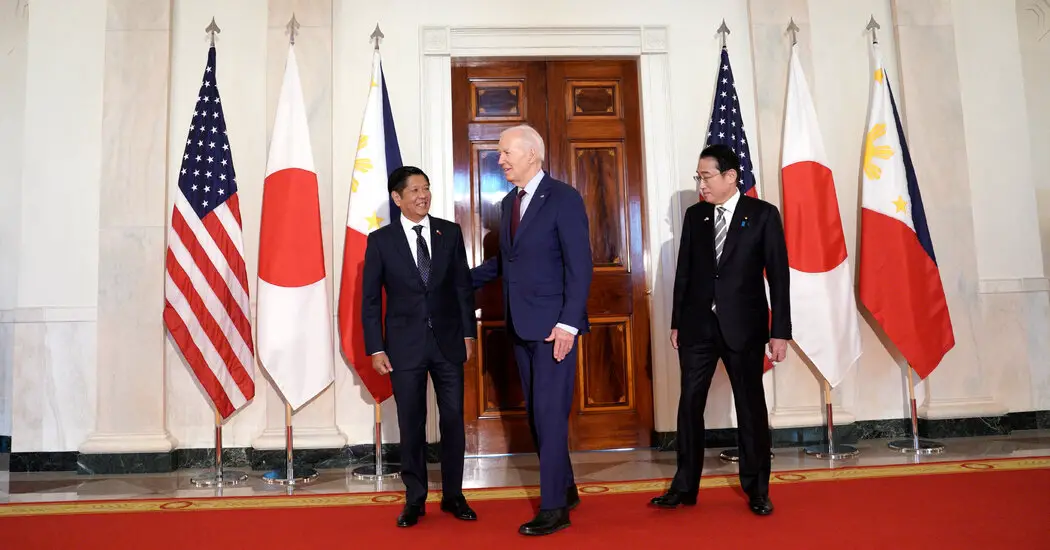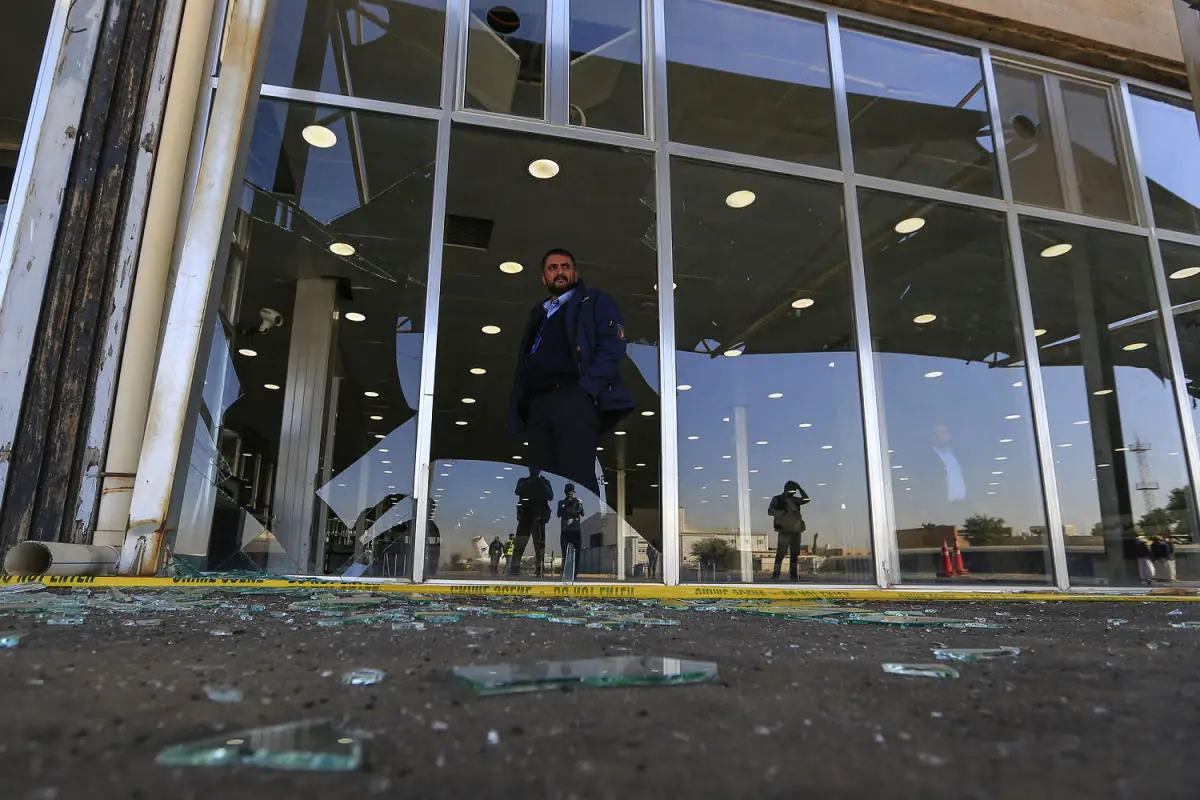
President Biden used a first-ever joint meeting with the leaders of Japan and the Philippines on Thursday to expand a web of security and economic alliances in the Indo-Pacific that American officials believe will serve as a shield against Chinese aggression.
Flanked by his counterparts and his top diplomatic aides at the White House, Mr. Biden said the countries were “deepening our maritime and security ties” and offered a blunt message clearly aimed at China’s actions in the South China Sea.
“I want to be clear, the United States defense commitments to Japan and to the Philippines are ironclad,” Mr. Biden said.
Jake Sullivan, the White House national security adviser, has described the diplomatic effort in Southeast Asia as one of a series of endeavors by like-minded nations to push back against China’s activities in trade, technology and military aggression.
The goal is different than that in Europe, where nations came together after World War II in a single alliance known as NATO. Instead of a single group, the United States and countries in the region are forming smaller, overlapping partnerships aimed at ensuring they can withstand Chinese pressure, analysts say.
“China uses a quite powerful mix of coercion, international trade, along with its growing naval power,” said Rana Mitter, a professor at the Harvard Kennedy School of Government. He said that the United States, Japan and the Philippines are seeking to demonstrate that they “have an ecosystem of different allies trying to give an answer” to that kind of pressure.
That strategy was on display Thursday when all three leaders stressed the necessity of unity, even though none called out China by name.
Prime Minister Fumio Kishida of Japan declared that “multilayered cooperation is essential” to the future of the region. President Ferdinand Marcos Jr. of the Philippines said the meeting highlights three countries “linked by a profound respect for democracy, good governance and the rule of law.”
Mr. Biden concluded: “When we stand as one, we are able to forge a better peace for all.”
It is unlikely that bolstering the alliances would provide a short-term solution to the problem of Beijing’s harassment of Philippine ships in the South China Sea, which the United States and its allies have said is a violation of international law and must stop.
But Biden administration officials said the meeting of the three leaders demonstrated to China even stronger military and diplomatic unity among the leaders of the three allies.
Chinese coast guard ships have been ramming Philippine vessels, blasting them with water cannons and aiming lasers at their crews in what the United States condemns as “coercive and unlawful tactics” in one of the most crucial waterways in the world.
So far, the Chinese provocations have fallen short of the kinds of attacks that would trigger the military defense pact that the United States and the Philippines signed in 1951.
One U.S. official, speaking on the condition of anonymity to discuss the meeting before it convened, called the issue of security in the South China Sea a “pillar” of the discussions.
“The U.S., Japan and the Philippines are three closely aligned maritime democracies with increasingly convergent strategic objectives and interests,” Mr. Sullivan said on Tuesday. “Just this past week, our three countries and Australia held joint naval drills in the South China Sea.”
Officials said there would be similar drills in the months ahead as the nations continue to assert the freedom of travel through international waters that China claims as its own.
Mr. Mitter said that the prospect of future naval drills — potentially near the Philippines — would be one of the strongest messages the three countries could send. China has asserted greater control over the South China Sea over the years, trying to expand its military footprint in the region.
“I think they would take it seriously,” he said of the Chinese leadership, noting that the demonstration of military unity could prompt the government there to scale back the harassment in the short run.
But he added that in the long run, Japan and the Philippines were increasingly eager to establish a web of alliances with each other that could survive even if the United States were to scale back its engagement under a more isolationist administration if former President Donald J. Trump won a second term.
“That could be very difficult,” he said about a possible victory by Mr. Trump. “America’s allies in the region are very keen for the U.S. to stay in the region and have a presence there.”
The meeting of the three leaders comes a day after Mr. Biden hosted Mr. Kishida at the White House for meetings and a state dinner. The two men discussed China’s military and economic aggression but also announced a series of new initiatives to foster more cooperation on the economy, space exploration, technology and research.
Officials for the three countries issued a similar list of announcements after Thursday’s meeting.
The officials said the countries would make new investments in infrastructure projects in the Philippines aimed at improving what they called “high-impact” projects such as ports, rail, clean energy and semiconductor supply chains.
They also unveiled new efforts by the United States and Japan to install radio access network technology in the Philippines, a modernization aiming to improve wireless communications throughout the region.
The officials also promised new collaborations among the three nations on global humanitarian assistance efforts and even greater cooperation among the countries’ militaries.







